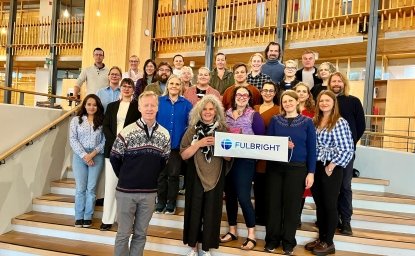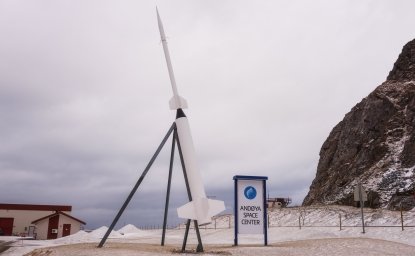
A blog of the Polar Institute
The second major diplomatic meeting under the Antarctic Treaty System since the start of the Ukraine war concluded on November 4 in Hobart, Tasmania and many were waiting to see if the Treaty System, which operates on consensus of its members, would succumb to the tensions. The answer is no – while there was considerable time spent on national statements about Ukraine and procedural wrangles about how these would or would not be reflected in the meeting’s final report, the Commission for the Conservation of Antarctic Marine Living Resources (CCAMLR, which handles fisheries and marine protection in the Southern Ocean) by and large conducted its business in the usual way.
That’s not to say that the meeting was a great success. Russia and China combined for the sixth year in a row to prevent establishment of new marine protected areas, a major goal of most parties and the environmental community, and to slow steps to implement existing MPAs. Both countries continued to fend off efforts to improve compliance rules related to the burgeoning krill fishery, with China in effect arguing that there’s no need to increase safeguards against illegal, unregulated and unreported (IUU) fishing in relation to krill in the absence of evidence of IUU activities. Russia in particular continued its practice of politicizing the work of the Commission’s scientific committee, upending attempts by the scientists of other states to provide agreed scientific advice in numerous instances to the Commission.
Russia continued its efforts begun last year to stoke, rather deliberately, tensions between the UK and Argentina when it prevented establishment of a catch limit for toothfish in the waters near South Georgia, which is subject to conflicting British and Argentine territorial claims. During this year the UK licensed its companies to go fishing regardless. Even though there was adequate science to support some fishing in this area, as there was no CCAMLR catch limit in force, the U.S., which provides the largest market for this product (sold in restaurants as Chilean Sea Bass), moved to block imports into the U.S. As a result, a U.S. importing company brought suit in U.S. courts employing the UK’s arguments. All of this is messy and unfortunate, but flows from prior Russian troublesome behavior and isn’t an offshoot of the Ukraine conflict per se.
Vetoing marine protected areas, holding up compliance and anti-IUU efforts, and undermining scientific work is all bad for the Commission and for those who want CCAMLR to make progress in these areas; but these are normal attributes of the work of the Commission that we’ve seen, in greater or less extent, over past years. Russia wasn’t kicked out of meetings (whether that could even be done consistent with the underlying treaty isn’t clear), it didn’t prevent the bulk of fisheries management work that is the lifeblood of the organization or attempt to extend its veto further than previously. These were all serious concerns in the run-up to the meeting.
Indeed, Russia during the meeting joined with all the other members in agreeing that usual process be observed in that Ukraine would take over the chairmanship of the organization for the next two years. This was possibly because CCAMLR’s rules explicitly provided for this and Russia had no procedural way of avoiding the result. However, it perhaps says something that despite Ukraine denouncing Russian military action at the beginning of the meeting, and many members leaving the room once it was Russia’s turn to speak, Russia did not protest or raise any difficulties when the point came to acknowledge Ukraine taking the chairmanship of CCAMLR
At the Antarctic Treaty Consultative Meeting in Berlin in May this year, there was an extensive fight over the final report, with the Russians attempting to prevent inclusion of a record of interventions criticizing it over the Ukraine war. In Hobart, while the Russians delayed the meeting with maneuvering to delete or amend that sort of material, in the end they did not this time object to the report.
Thus, by and large, the expected work of the Commission was accomplished. The parties even reached consensus agreement on a resolution on climate change and a plan to host an intersessional meeting next year on MPAs. Although the failure to establish new MPAs was disappointing, there was no indication prior to the meeting that Russia and China would change their positions this year, and as expected, they did not.
There is plenty of reason to worry about the state of the Treaty System. A minority of countries stifle attempts to promote widely accepted environmental goals, including protection of Antarctic species or promoting large-scale ocean conservation. There is also a failure to fully incorporate climate change into Antarctic policies even though Antarctic science is vital for understanding the global climate and melting Antarctic ice will, in the future, cause significant sea-level rise. The continuing crisis in Ukraine makes cooperation with Russia on polar issues much less feasible.
Nevertheless, that CCAMLR has not unraveled as a consequence of the Ukraine war has some important benefits. Antarctic cooperation depends on the Treaty System, and its framework has provided political stability and a channel for discourse for decades. In the Arctic, regional cooperation (albeit lacking a treaty to hold it together) is in a parlous state with the suspension of the work of the Arctic Council. But countries active in Antarctica are finding a path forward, although often a difficult one, with Russia. This means that there continues to be a commonly accepted structure in which to debate the future of marine protected areas or develop new approaches for managing krill stocks, among other issues. In sum, despite dire predictions, the state of Antarctic diplomacy remains largely as it was.
Author

Former Acting Deputy Assistant Secretary for Oceans and Fisheries and Director for Ocean and Polar Affairs, US Department of State

Polar Institute
Since its inception in 2017, the Polar Institute has become a premier forum for discussion and policy analysis of Arctic and Antarctic issues, and is known in Washington, DC and elsewhere as the Arctic Public Square. The Institute holistically studies the central policy issues facing these regions—with an emphasis on Arctic governance, climate change, economic development, scientific research, security, and Indigenous communities—and communicates trusted analysis to policymakers and other stakeholders. Read more

Explore More in Polar Points
Browse Polar Points
Greenland’s New Governing Coalition Signals Consensus

Fulbright Arctic Initiative IV Scholar at the Polar Institute


